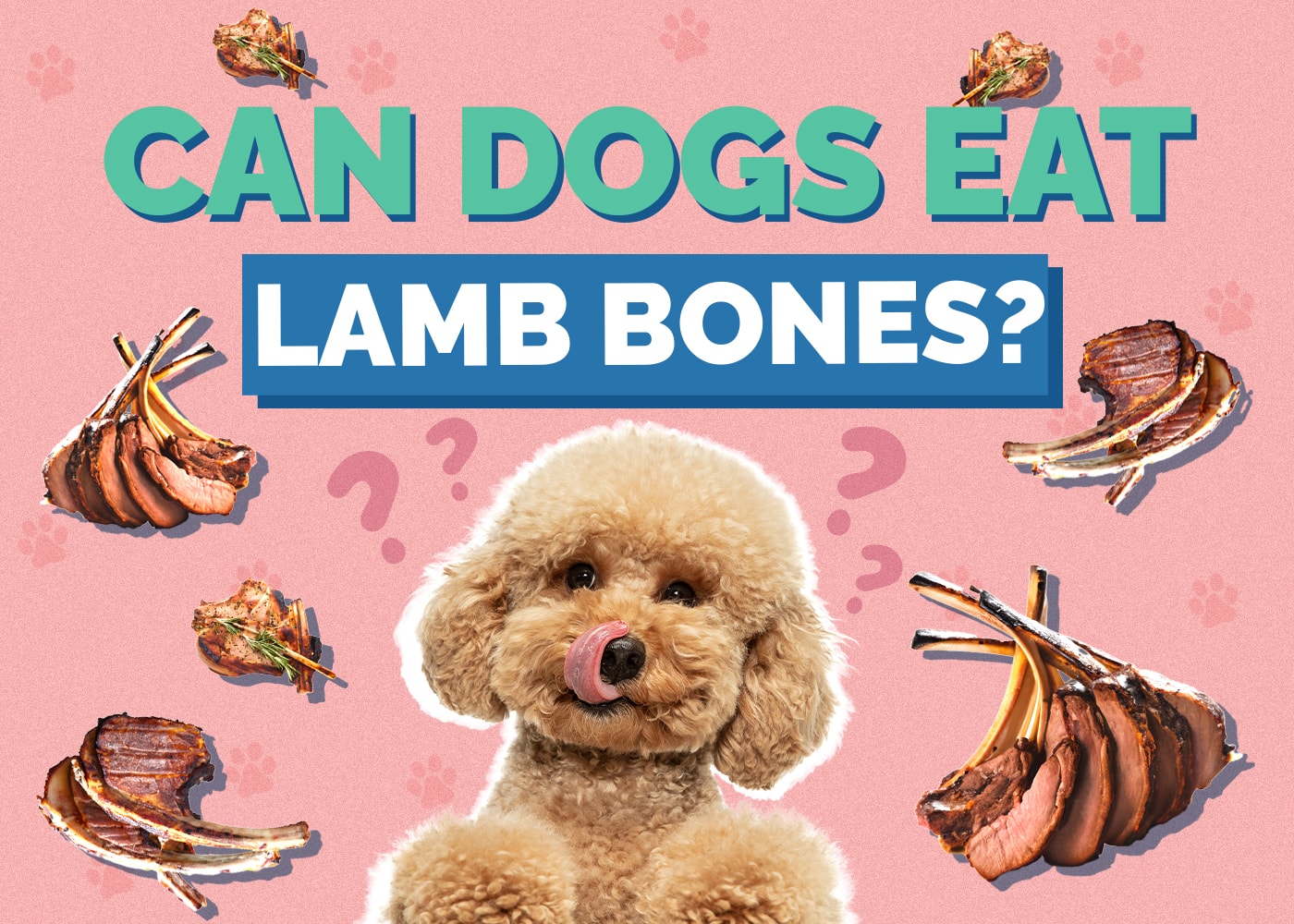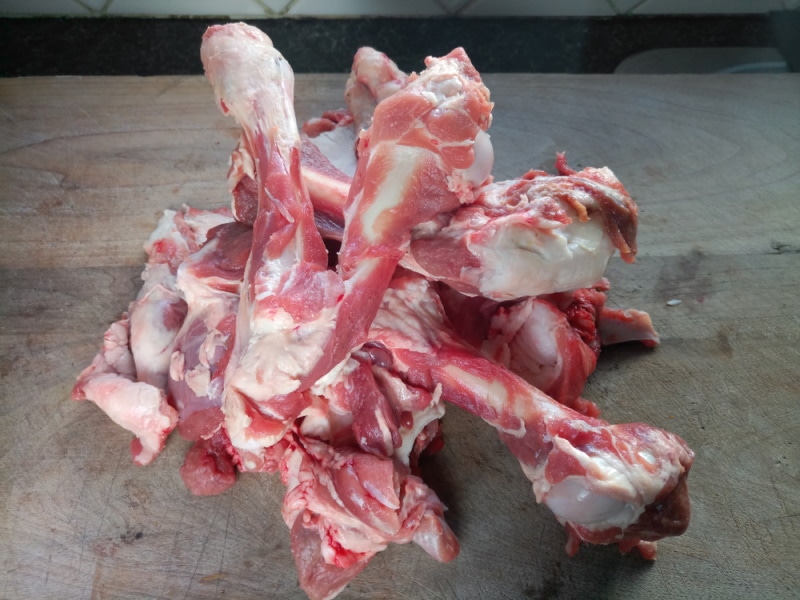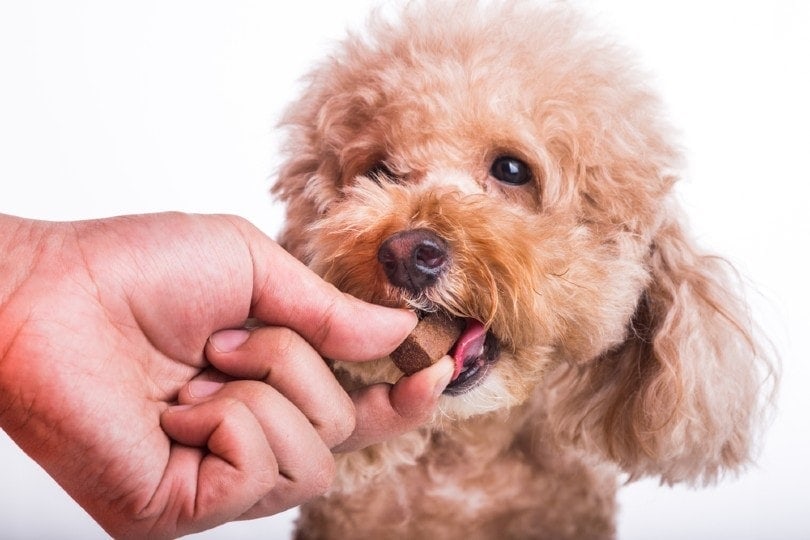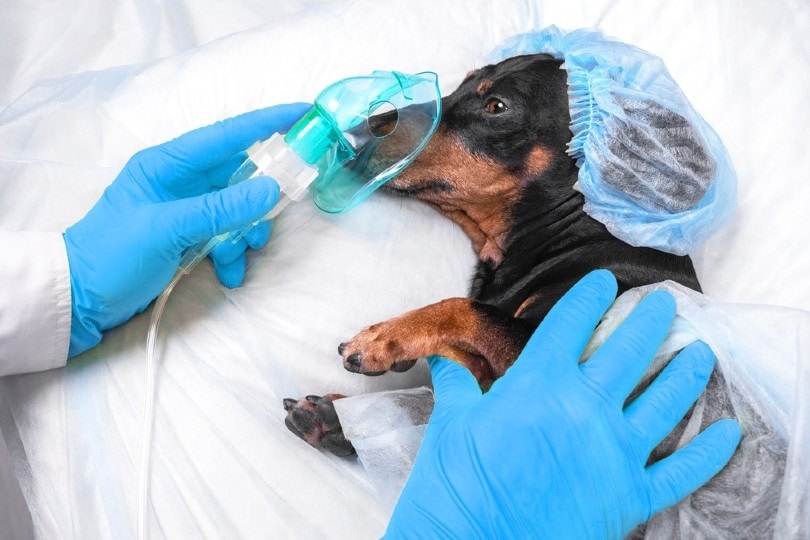Can Dogs Eat Lamb Bones? Vet Reviewed Health & Safety Considerations

Updated on

Although dogs love chewing on bones, some are safer than others. But can dogs eat lamb bones? We recommend not giving your dog lamb bones, due to multiple health risks. Raw lamb bones are generally safer, but there is a lot to consider before offering your dog a lamb bone. Feeding bones to dogs is a controversial topic, and in this article, we’ll discuss the health and safety considerations concerning lamb bones to help you make the best decision for your dog’s health.
Are Lamb Bones Safe to Give to Dogs?
Cooked lamb bones should never be offered to your dog. They become brittle and can easily be broken into smaller shards or splinters, which can cause severe damage to your dog’s digestive tract as they pass through.
Raw lamb bones are potentially less likely to splinter, but they pose serious risks and also should be avoided. If your dog swallows a large piece of bone that breaks off, it could result in a gastrointestinal obstruction. These blockages are very harmful because they can prevent food from passing through the digestive tract, and require major surgery to remove. If they do manage to pass, they can cause serious damage as they transit.
Bones can also spread salmonella and other food-borne illnesses to your dog, other pets, or humans in the home. This can be particularly risky if any immunocompromised people or animals are in the house.

Other Dangers
Unfortunately, lamb bones generally have the potential to do more harm than good. In addition to the above concerns, chewing bones can cause damage to teeth, including fractures and wear.
Are Lamb Bones Healthy for Dogs?
The limited nutrition obtained when a dog chews on a raw bone comes mainly from the soft tissues that are attached, such as the meat, fat, cartilage, and connective tissue. However, a complete and balanced diet will already offer your dog all the nutrition they need. Speak with your vet if you still feel your dog may benefit from bone nutrition, as you might consider the option to offer your pet bone broth, which is far less risky than actual bones.
And rather than offering bones for dubious dental benefits, several better options are available to help maintain your dog’s dental health, such as toys and chews:
- Purchase chew toys made from twisted rope or dense rubber
- Give your dog dental chews to assist with plaque build-up
- Regularly brush your dog’s teeth and consider using dental wipes between cleanings

Conclusion
Ultimately, the risks generally outweigh any benefits of lamb bones. Since high-quality, well-balanced dog food already has all the vitamins and minerals a dog needs to keep healthy, there is no reason to risk their health by giving them bones.
Several safe alternatives to bones can provide your dog with mental stimulation and keep their dental health in top shape. We advise consulting your veterinarian beforehand if you want to feed your dog lamb bones.
- See Also: Rachael Ray Nutrish Dog Food Review












